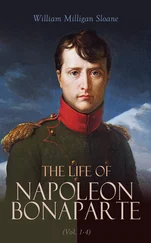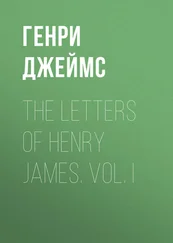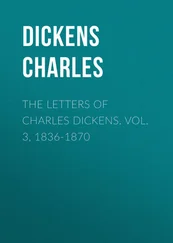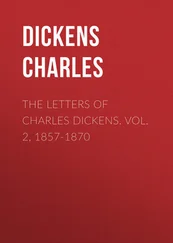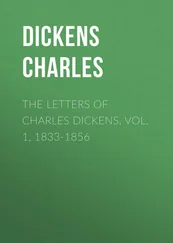William James - The Letters of William James, Vol. 2
Здесь есть возможность читать онлайн «William James - The Letters of William James, Vol. 2» — ознакомительный отрывок электронной книги совершенно бесплатно, а после прочтения отрывка купить полную версию. В некоторых случаях можно слушать аудио, скачать через торрент в формате fb2 и присутствует краткое содержание. Жанр: Биографии и Мемуары, Философия, foreign_edu, foreign_antique, на английском языке. Описание произведения, (предисловие) а так же отзывы посетителей доступны на портале библиотеки ЛибКат.
- Название:The Letters of William James, Vol. 2
- Автор:
- Жанр:
- Год:неизвестен
- ISBN:нет данных
- Рейтинг книги:3 / 5. Голосов: 1
-
Избранное:Добавить в избранное
- Отзывы:
-
Ваша оценка:
- 60
- 1
- 2
- 3
- 4
- 5
The Letters of William James, Vol. 2: краткое содержание, описание и аннотация
Предлагаем к чтению аннотацию, описание, краткое содержание или предисловие (зависит от того, что написал сам автор книги «The Letters of William James, Vol. 2»). Если вы не нашли необходимую информацию о книге — напишите в комментариях, мы постараемся отыскать её.
The Letters of William James, Vol. 2 — читать онлайн ознакомительный отрывок
Ниже представлен текст книги, разбитый по страницам. Система сохранения места последней прочитанной страницы, позволяет с удобством читать онлайн бесплатно книгу «The Letters of William James, Vol. 2», без необходимости каждый раз заново искать на чём Вы остановились. Поставьте закладку, и сможете в любой момент перейти на страницу, на которой закончили чтение.
Интервал:
Закладка:
The dinners of a club to which allusions will occur in this volume, (in letters to Henry L. Higginson, T. S. Perry, and John C. Gray) were occasions apart from all others; for James could go to them at the last moment, without any sense of responsibility and knowing that he would find congenial company and old friends. So he continued to go to these dinners, even after he had stopped accepting all invitations to dine. The Club (for it never had any name) had been started in 1870. James had been one of the original group who agreed to dine together once a month during the winter. Among the other early members had been his brother Henry, W. D. Howells, O. W. Holmes, Jr., John Fiske, John C. Gray, Henry Adams, T. S. Perry, John C. Ropes, A. G. Sedgwick, and F. Parkman. The more faithful diners, who constituted the nucleus of the Club during the later years, included Henry L. Higginson, Sturgis Bigelow, John C. Ropes, John T. Morse, Charles Grinnell, James Ford Rhodes, Moorfield Storey, James W. Crafts, and H. P. Walcott.
Every little while James's sleep would "go to pieces," and he would go off to Newport, the Adirondacks, or elsewhere, for a few days. This happened both summer and winter. It was not the effect of the place or climate in which he was living, but simply that his dangerously high average of nervous tension had been momentarily raised to the snapping point. Writing was almost certain to bring on this result. When he had an essay or a lecture to prepare, he could not do it by bits. In order to begin such a task, he tried to seize upon a free day—more often a Sunday than any other. Then he would shut himself into his library, or disappear into a room at the top of the house, and remain hidden all day. If things went well, twenty or thirty sheets of much-corrected manuscript (about twenty-five hundred words in his free hand) might result from such a day. As many more would have gone into the waste-basket. Two or three successive days of such writing "took it out of him" visibly.
Short holidays, or intervals in college lecturing, were often employed for writing in this way, the longer vacations of the latter nineties being filled, as has been said, with traveling and lecture engagements. In the intervals there would be a few days, or sometimes two or three whole weeks, at Chocorua. Or, one evening, all the windows of the deserted Irving Street house would suddenly be wide open to the night air, and passers on the sidewalk could see James sitting in his shirt-sleeves within the circle of the bright light that stood on his library table. He was writing letters, making notes, and skirmishing through the piles of journals and pamphlets that had accumulated during an absence.
The impression which he made on a student who sat under him in several classes shortly before the date at which this volume begins have been set down in a form in which they can be given here.
"I have a vivid recollection" (writes Dr. Dickinson S. Miller) "of James's lectures, classes, conferences, seminars, laboratory interests, and the side that students saw of him generally. Fellow-manliness seemed to me a good name for his quality. The one thing apparently impossible to him was to speak ex cathedra from heights of scientific erudition and attainment. There were not a few 'if's' and 'maybe's' in his remarks. Moreover he seldom followed for long an orderly system of argument or unfolding of a theory, but was always apt to puncture such systematic pretensions when in the midst of them with some entirely unaffected doubt or question that put the matter upon a basis of common sense at once. He had drawn from his laboratory experience in chemistry and his study of medicine a keen sense that the imposing formulas of science that impress laymen are not so 'exact' as they sound. He was not, in my time at least, much of a believer in lecturing in the sense of continuous exposition.
"I can well remember the first meeting of the course in psychology in 1890, in a ground-floor room of the old Lawrence Scientific School. He took a considerable part of the hour by reading extracts from Henry Sidgwick's Lecture against Lecturing, proceeding to explain that we should use as a textbook his own 'Principles of Psychology,' appearing for the first time that very week from the press, and should spend the hours in conference, in which we should discuss and ask questions, on both sides. So during the year's course we read the two volumes through, with some amount of running commentary and controversy. There were four or five men of previous psychological training in a class of (I think) between twenty and thirty, two of whom were disposed to take up cudgels for the British associational psychology and were particularly troubled by the repeated doctrine of the 'Principles' that a state of consciousness had no parts or elements, but was one indivisible fact. He bore questions that really were criticisms with inexhaustible patience and what I may call (the subject invites the word often) human attention; invited written questions as well, and would often return them with a reply penciled on the back when he thought the discussion too special in interest to be pursued before the class. Moreover, he bore with us with never a sign of impatience if we lingered after class, and even walked up Kirkland Street with him on his way home. Yet he was really not argumentative, not inclined to dialectic or pertinacious debate of any sort. It must always have required an effort of self-control to put up with it. He almost never, even in private conversation, contended for his own opinion. He had a way of often falling back on the language of perception, insight, sensibility, vision of possibilities. I recall how on one occasion after class, as I parted with him at the gate of the Memorial Hall triangle, his last words were something like these: 'Well, Miller, that theory's not a warm reality to me yet—still a cold conception'; and the charm of the comradely smile with which he said it! The disinclination to formal logical system and the more prolonged purely intellectual analyses was felt by some men as a lack in his classroom work, though they recognized that these analyses were present in the 'Psychology.' On the other hand, the very tendency to feel ideas lent a kind of emotional or æsthetic color which deepened the interest.
"In the course of the year he asked the men each to write some word of suggestion, if he were so inclined, for improvement in the method with which the course was conducted; and, if I remember rightly, there were not a few respectful suggestions that too much time was allowed to the few wrangling disputants. In a pretty full and varied experience of lecture-rooms at home and abroad I cannot recall another where the class was asked to criticize the methods of the lecturer.
"Another class of twelve or fourteen, in the same year, on Descartes, Spinoza, and Leibnitz, met in one of the 'tower rooms' of Sever Hall, sitting around a table. Here we had to do mostly with pure metaphysics. And more striking still was the prominence of humanity and sensibility in his way of taking philosophic problems. I can see him now, sitting at the head of that heavy table of light-colored oak near the bow-window that formed the end of the room. My brother, a visitor at Cambridge, dropping in for an hour and seeing him with his vigorous air, bronzed and sanguine complexion, and brown tweeds, said, 'He looks more like a sportsman than a professor.' I think that the sporting men in college always felt a certain affinity to themselves on one side in the freshness and manhood that distinguished him in mind, appearance, and diction. It was, by the way, in this latter course that I first heard some of the philosophic phrases now identified with him. There was a great deal about the monist and pluralist views of the universe. The world of the monist was described as a 'block-universe' and the monist himself as 'wallowing in a sense of unbridled unity,' or something of the sort. He always wanted the men to write one or two 'theses' in the course of the year and to get to work early on them. He made a great deal of bibliography. He would say, 'I am no man for editions and references, no exact bibliographer.' But none the less he would put upon the blackboard full lists of books, English, French, German, and Italian, on our subject. His own reading was immense and systematic. No one has ever done justice to it, partly because he spoke with unaffected modesty of that side of his equipment.
Читать дальшеИнтервал:
Закладка:
Похожие книги на «The Letters of William James, Vol. 2»
Представляем Вашему вниманию похожие книги на «The Letters of William James, Vol. 2» списком для выбора. Мы отобрали схожую по названию и смыслу литературу в надежде предоставить читателям больше вариантов отыскать новые, интересные, ещё непрочитанные произведения.
Обсуждение, отзывы о книге «The Letters of William James, Vol. 2» и просто собственные мнения читателей. Оставьте ваши комментарии, напишите, что Вы думаете о произведении, его смысле или главных героях. Укажите что конкретно понравилось, а что нет, и почему Вы так считаете.



